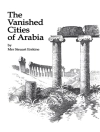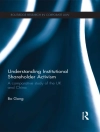The use of spectroscopy in food analysis is growing and this informative volume presents the application of advanced spectroscopic techniques in the analysis of food quality. The spectroscopic techniques include visible and NIR spectroscopy, FTIR spectroscopy and Laser-induced Breakdown Spectroscopy (LIBS). A wide range of food and beverage items are covered including tea, coffee and wine. The chapters will highlight the potential of spectroscopic techniques to enrich the food quality analysis experience when coupled with artificial intelligence and machine learning and provide a good opportunity to assess and critically lay out any future prospects.
Different chapters have been written using a bottom-up approach that suits the needs of novice researchers and at the same time offers a smooth read for professionals. The book will also be of use to those developing spectroscopic facilities providing a useful cross comparison of the various techniques.
Daftar Isi
Spectroscopic Techniques to Analyse Food Quality, Chemistry and Function; Spectroscopic Techniques for Quality Assessment of Tea and Coffee; Fruit / Juice Quality Assessment Using Spectroscopic Data Analysis; Advanced Analytical Methods used for the Detection of Irradiated Food; Review of Laser Induced Breakdown Spectroscopy (LIBS) in Food Analysis; Visible and Near Infrared Spectroscopy for Quality Analysis of Wine; Application of FTIR Spectroscopy and Chromatography in Combination with Chemometrics for Quality Control of Olive Oil; Application of Molecular Spectroscopy and Chromatography in Combination with Chemometrics for Authentication of Virgin Coconut Oil; Application of Molecular Spectroscopy and Chromatography in Combination with Chemometrics for Authentication of Cod Liver Oil; On Site Food Authenticity Testing: Advances in Miniaturization of Spectrometers and Machine Learning












